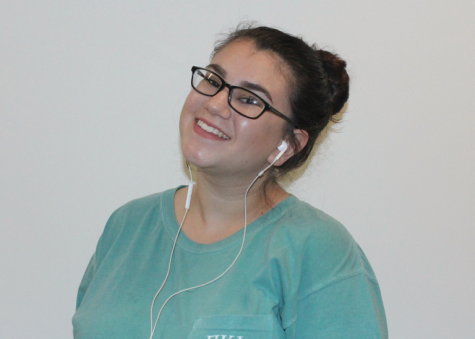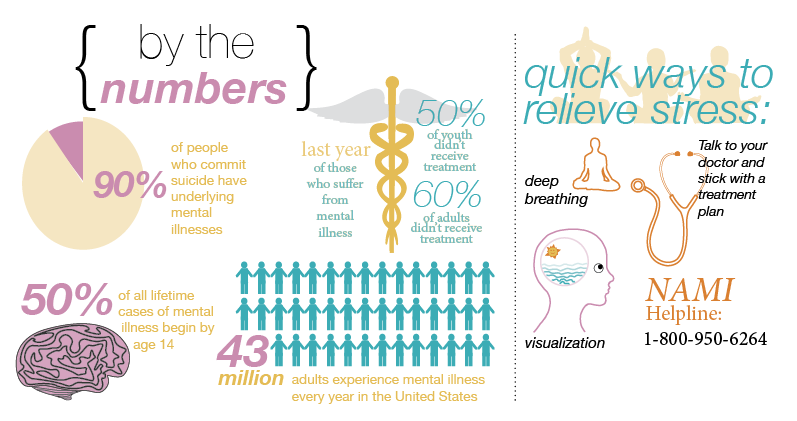Fighting the Stigma
Mental health month helps raise awareness, open conversation
In the month of May, mental health awareness is exhibited through spreading the word, providing support and educating people on what it means to be mentally healthy.
According to the National Alliance on Mental Illness (NAMI), 20 percent of Americans suffer from a mental illness, and each person is likely affected by it from someone close to them.
Blue Valley psychologist Julie Seitter said it’s important to raise awareness about mental health conditions.
“Once they know the symptoms, they can let go of the fear of wondering why they feel a certain way,” Seitter said.
Resource teacher Kate Julian said she assists many students who struggle with different mental illnesses.
“We need to be more open about mental illness and not discuss it in whispers,” Julian said. “Society has made fun of mental illness. Do you see movies in which people with cancer are being made fun of?”
Seitter said discussing mental health more openly allows people to understand it better and to try to help those in need.
“Thirty years ago, a lot of mental health disorders were never discussed, and families would never think about telling their best friend if a family member was struggling,” Seitter said. “Now, there are television ads, movies, TV shows, school assemblies, posters and many other things that are opening minds and hearts to the struggles many people face.”
Seitter said it’s easier for students to cope with mental illnesses at school when they have a good support system.
“When staff build relationships with students, students feel safer and more comfortable at school,” she said. “Many students come to school wearing masks, hiding their feelings behind a smile all day to make others think they are fine.”
Julian said she believes adjusting small aspects at BV will make significant changes for both people who are coping with a mental illness and people who are trying to help.
“I would like for the teachers and staff to think about ways to reduce stress within the classroom,” she said. “Good mental health means having the skills necessary to cope with everyday stressors.”
Seitter said there are many ways to handle the effects of a mental illness.
“We can all benefit from practicing mindfulness, meditation, surrounding ourselves with positive people, expressing our emotions with safe people, having a mentor, eating healthy, exercising regularly and taking time to do the things we enjoy,” she said.

Emilee Holscher is the web editor for “The Tiger Print.” She enjoys writing feature stories. Outside of her involvement in “The Tiger Print,” Emilee...

Ifrah Sayyada is a staff writer for “The Tiger Print.” She enjoys writing features, opinions and news stories about current issues. Along with being...




